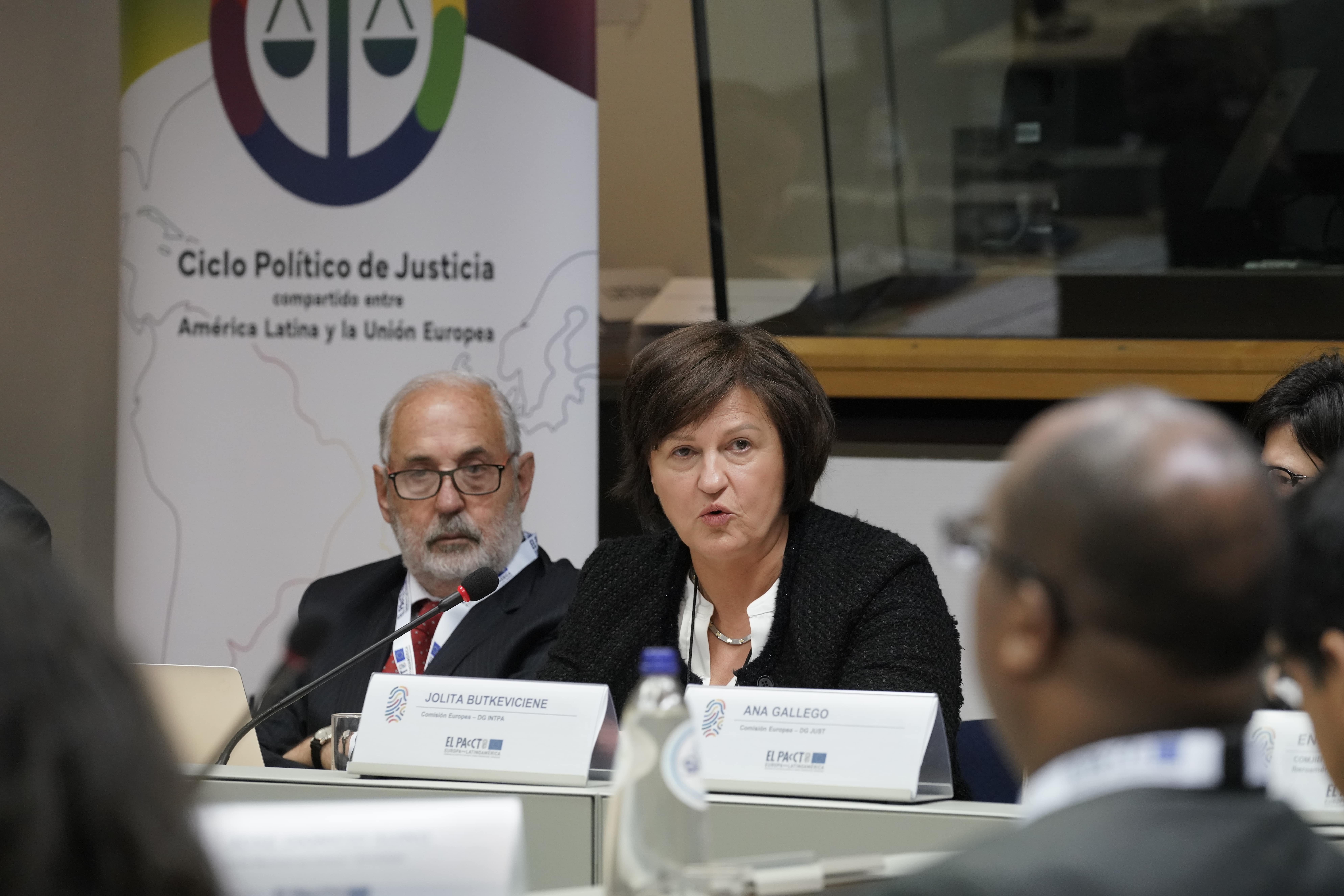The Shared Political Cycle of Justice between Latin America and the European Union aims to generate a recognisable justice system to facilitate criminal justice cooperation between the two regions. The main regional justice institutions in Latin America (AIAMP, COMJIB and Iberoamerican Judicial Summit) have signed the declaration that opens this new stage of collaboration, whose objective is to define common strategies in the area of criminal justice and translate them into specific measures. Measures based on common standards to promote the effectiveness of investigating and prosecuting the main forms of organised crime to promote more just and peaceful societies.
The European Union Commissioner for Justice, Didier Reynders, has stated that “bringing our cooperation to the next level, for instance by exchanging electronic evidence more easily or by having Joint Investigation Teams, requires strong safeguards for fundamental rights. To this end, we want to start intensifying our exchanges with national authorities and judicial cooperation networks of Ibero-America to prepare the ground for greater cooperation with countries in the region”
Jolita Butkeviciene, Director of International Partnerships for Latin America and the Caribbean at the European Commission, stressed the need for judicial cooperation between the EU and Latin America based on trust and a more strategic dialogue to tackle organised crime.
The Latin American partners also highly valued regional cooperation between Latin America and the European Union. For Jorge Abbot, President of AIAMP, there is common ground to develop a real common justice agenda between the EU and Latin America. The Secretary General of COMJIB, Enrique Gil Botero, urged that the interdependence of globalisation and the new reality that threatens to paralyse, “even set back”, common agendas, should be addressed. On the other hand, Elena Martínez Rosso, representing the Ibero-American Judicial Summit, reaffirmed the IJC’s commitment to integrate the fight against transnational organised crime as a thematic axis of the Summit. “Without judicial cooperation, the fight against organised crime is not possible,” she added.
José de la Mata, Spain’s national member of Eurojust, and Michael Carlin of the Council of the European Union also participated in the inauguration.
In addition to regional justice organisations, high level representatives from several Latin American countries attended the meeting in Brussels (Ministers, General Prosecutors and Supreme Court Magistrates). From the European Union, the presence of two Member States (Spain and Portugal) should be highlighted. The judicial authorities have been in dialogue with the main justice institutions of the EU (DG JUST and EUROJUST) and with members of the Parliament or the Council of the European Union.
A roadmap with fundamental subjects for the functioning of justice
The objectives of the Shared Political Cycle of Justice will be renewed every two years and a monitoring committee will be in charge of defining priorities and evaluating progress together with European Union institutions.
The coordinator of the judicial area of EL PAcCTO, Antonio Roma, underlines the importance of this new mechanism “which represents an important step forward in the fight against organised crime and the definition of public justice policies for the future” “It implies the establishment of a procedure, the definition of a strategy to define common standards for the two regions.
Some of the objectives that have been defined for this first cycle are:
- The promotion of rapid, effective and international legal cooperation respecting fundamental rights, with special focus on the creation and electronic transmission of requests for legal cooperation, effective use of Joint Investigation Teams and the protection of personal data.
- The generalisation of the use of electronic means of evidence in criminal proceedings.
- The protection of the environment through adequate criminalisation and an improvement of specialised investigation in the matter.
- The strengthening of national regulations and institutional collaboration to deprive organised crime of its profits.
- The incorporation of the gender perspective as an element of analysis and design of Justice policies
- Promoting public security through the fight against impunity with CLASI collaboration
